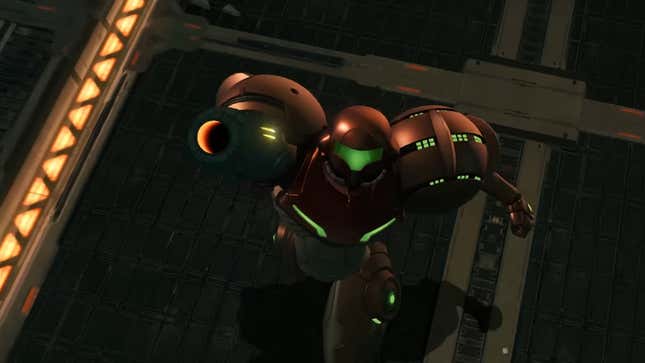
Metroid Prime Remastered has been out for less than a week, and players are praising how well the Nintendo Switch version holds up to the original. There’s a major difference, though: The developers who worked on Metroid Prime for the GameCube have had their names left off the credits screen. And they’re not thrilled about it.
Zoid Kirsch was a senior engineer on the original Metroid Prime. While he thought that the remaster was “wonderful” and “should be played and enjoyed,” he was disappointed that he and his former colleagues were reduced to “Original GameCube and Wii Versions Development Staff.”
Former lead engineer Jack Mathews thought that the team’s exclusion was “shameful.” He acknowledged that his own code “was probably replaced,” but many of the original team members’ work appeared to be largely unchanged. He believed that the remaster included “uprezzed” art (low-resolution art changed to a higher resolution), and that the original game design should be credited.
It wasn’t just the original GameCube developers who felt stiffed. Staffers who worked on the remaster also had issues with how credits were handled. One former senior artist pointed out that she and other developers who left the project early were put in the “Special Thanks” section of the remaster. Those who were let go were allegedly left off entirely. Kotaku reached out to Nintendo to ask about their crediting policy, but did not receive a response by the time of publication.
This is not the first time a recent Metroid game has had issues with crediting developers for their work. Metroid Dread was developed collaboratively between Nintendo and MercurySteam. Unfortunately, multiple staffers reported being left off the Dread credits despite spending months on producing the game.
Video game credits are often used as a carrot-and-stick mechanic for enforcing employee loyalty. The threat of being left off the list (which can hurt an employee’s future career prospects) often keeps developers from leaving the studio during the most difficult months leading up to the launch date. In the case of the original Retro Studio developers, they’ve already moved on. But their legendary work still deserves to be acknowledged—along with those who recreated Samus Aran’s world on modern hardware.